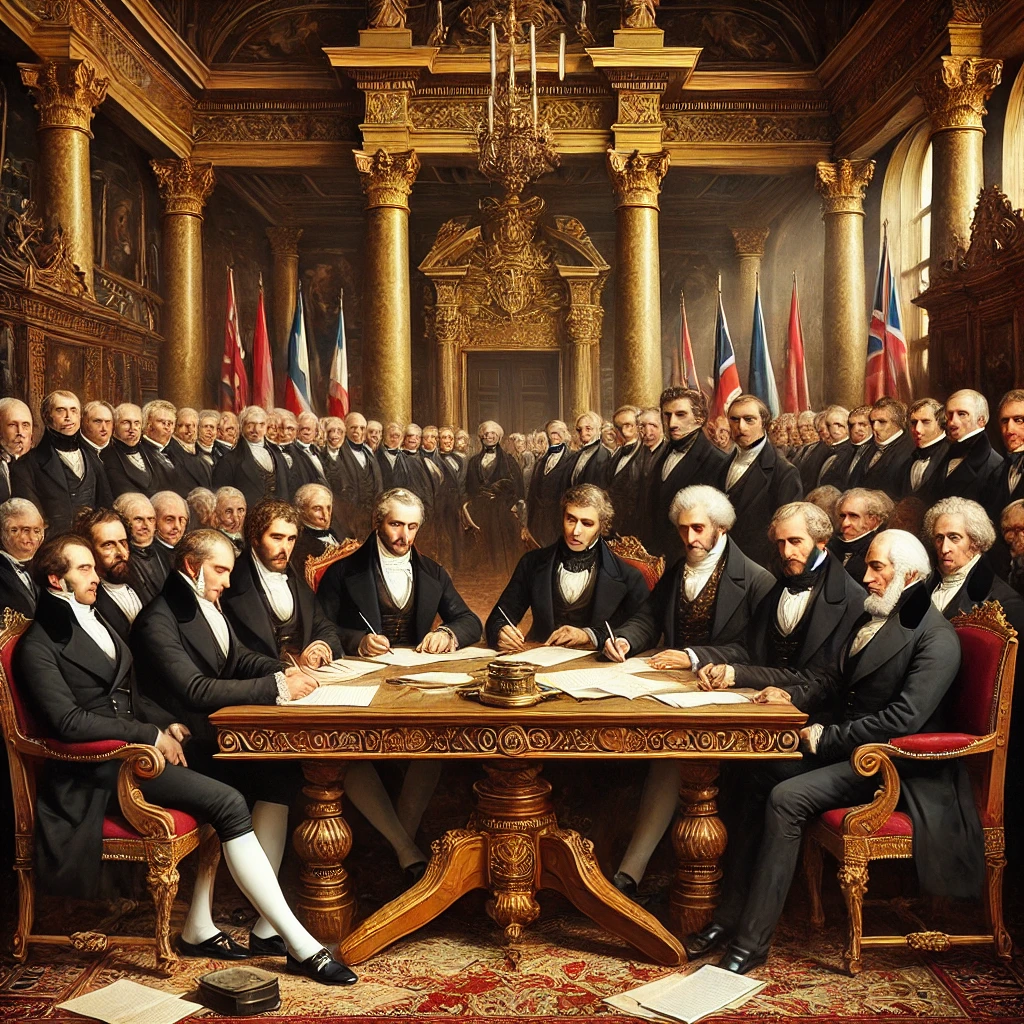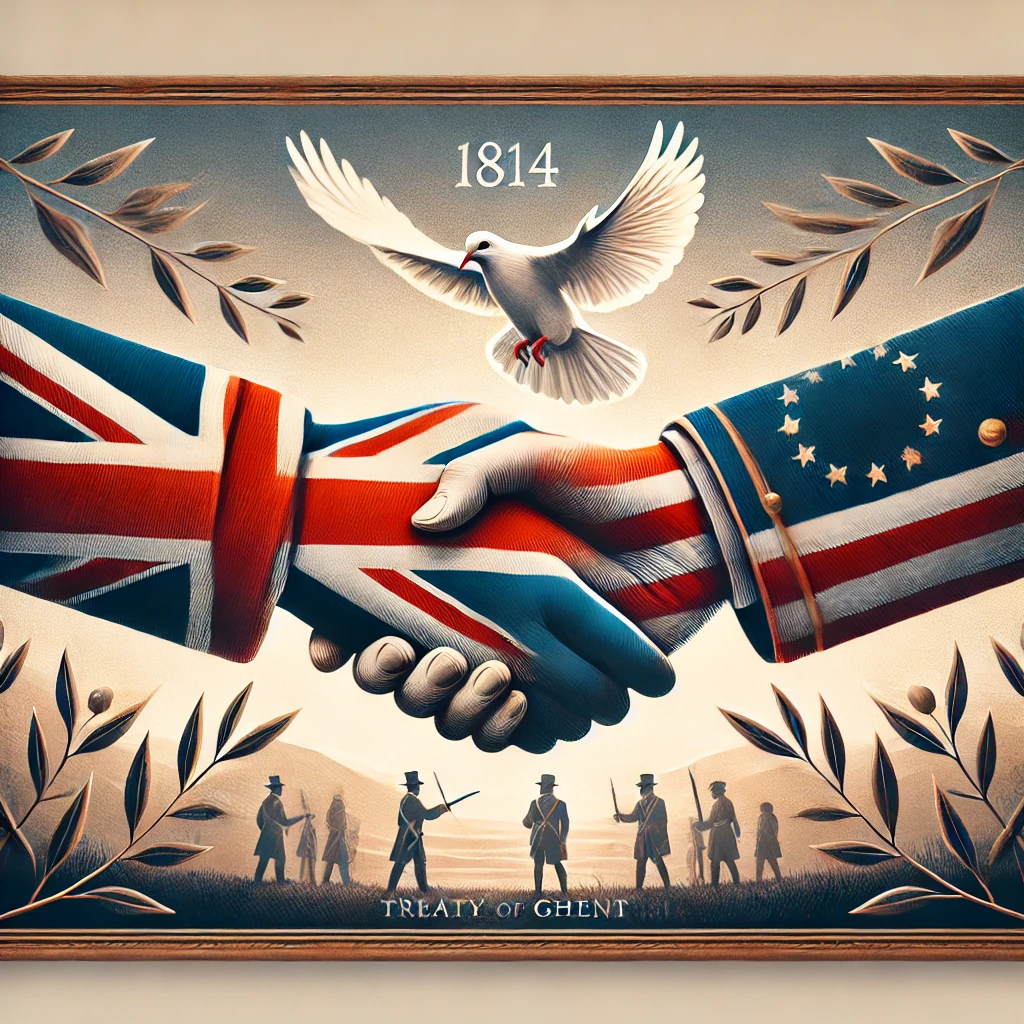On December 24th, 1814, the Treaty of Ghent was signed, officially ending the War of 1812 between the United States and Great Britain. This agreement marked a crucial turning point, restoring pre-war boundaries and setting the stage for a lasting peace between the two nations. Despite the war’s ambiguity in terms of clear victories, the treaty represented a significant moment in diplomatic history and had enduring implications for international relations.

The Context of the Treaty
The War of 1812, often dubbed the “Second War of Independence,” arose from a variety of grievances. Chief among them were British restrictions on American trade and the impressment of American sailors into the Royal Navy. These issues, coupled with territorial ambitions and conflicts with Native American tribes allied with the British, led to a declaration of war by the United States in June 1812.
By 1814, both sides were exhausted from the prolonged conflict. Britain, engaged in the Napoleonic Wars in Europe, sought to stabilize its relations with the United States. Meanwhile, America faced economic struggles and internal dissent. The decision to negotiate peace culminated in talks in Ghent, a neutral city in modern-day Belgium. After months of deliberation, the treaty was signed on Christmas Eve, though news of the agreement would take weeks to reach North America.
The Terms and Immediate Impact

The Treaty of Ghent essentially restored the status quo ante bellum, meaning “the state existing before the war.” Neither side gained or lost territory, and contentious issues such as impressment and neutral trading rights were left unresolved. Instead, the treaty called for the cessation of hostilities, the release of prisoners, and the establishment of commissions to settle boundary disputes.
Despite the lack of dramatic territorial or policy changes, the treaty had profound immediate effects. It ended years of hostility and established a framework for improved Anglo-American relations. Notably, the Battle of New Orleans occurred after the treaty was signed but before the news had reached combatants, showcasing the slow pace of communication in the early 19th century.
Lasting Significance and Legacy
The Treaty of Ghent marked the beginning of a new era in U.S.-British relations. Following the war, the two nations entered into a period of peaceful coexistence and cooperation, paving the way for agreements like the Rush-Bagot Treaty (1817) and the Convention of 1818, which clarified boundaries and reduced naval presence on the Great Lakes.
Domestically, the war and its conclusion bolstered a sense of national identity and unity in the United States. Though the conflict had been divisive, the successful defense against a global power reinforced American sovereignty. This newfound confidence inspired westward expansion and economic growth in the post-war years.
In a broader historical context, the treaty illustrated the power of diplomacy in resolving international conflicts. By choosing negotiation over prolonged warfare, the United States and Great Britain avoided further devastation and established a model for future conflict resolution.
The Treaty’s Modern Relevance

Today, the Treaty of Ghent is remembered as a testament to the resilience of diplomacy. Its emphasis on compromise and mutual respect underscores principles still relevant in contemporary international relations. Moreover, the treaty’s legacy reminds us of the importance of clear communication and timely agreements in an increasingly interconnected world.
As we reflect on this historic moment, the Treaty of Ghent stands as a reminder of the value of peace and the enduring impact of thoughtful diplomacy in shaping the course of history.
